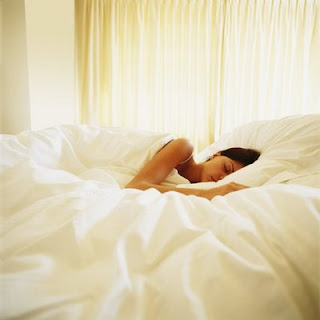We've all seen the posts on social networks by those fitness junkies talking about their workouts at 4:30 in the morning and pics of their healthy foods every couple hours. Might seem annoying until you see their profile picture and you know they are doing something right. Why can't we stay up late, sleep in and still get in a good workout and eat right? How important is your daily clock?
Timing is the secret to weight loss and living a healthy lifestyle. Our body's natural eat-and-sleep clocks have been confused by the excessive amount of artificial light we are around at night and the endless food cues we see daily. This causes hunger hormones to run rapid through the body making us more prone to cravings, resulting in the munchies.
Resetting your natural clock and focusing on when it is appropriate for your body to sleep and eat will help you get rid of those munchies and those few extra pounds your current cycle is holding you back from losing.
Here is an hour-by-hour schedule to help reset your body's natural clock.
6:00am-8:00am: Jump Up!
Start your day by getting active. In the first 30 minutes of waking start exercising. Get outside! The natural sunlight helps the body reset itself to a healthy cycle.
6:55am-8:55am: H2O
Each day you should drink 8 glasses of water, start early and make drinking water a habit that you continue throughout the entire day. Adding some lemon juice to a warm glass of water in the morning jump starts your metabolism and acts as a natural energizer helping wake you up on those groggy mornings.
7:00am-9:00am: Breakfast
When you wake up the "feed me" hormone, ghrelin, made in your stomach is awaken as well. If you ignore ghrelin and do not eat your stomach will continue to produce this "feed me" hormone causing cravings throughout the day. Suppress the effect of ghrelin by eating a mixture of complex carbohydrates and protein within an hour after you wake up. (Try eggs and whole wheat toast or Ezekiel bread)
10:00am-11:00am: Mid-morning snack
The stomach begins to produce ghrelin again about two hours before lunch. Turn off the production again by snacking on more carbohydrates and protein. (Try Greek yogurt with berries.)
12:00pm-1:00pm: Lunch
Your body produces another hunger hormone around lunchtime that makes you crave fat, galanin. But instead of feeding the beast with dietary fat, which will make cause your body to produce more galanin, eat more complex carbohydrates and protein. (Try a spicy grilled chicken wrap in a whole wheat tortilla with spicy hummus and black beans.)
2:00pm-3:30pm: Afternoon snack/nap
This is a good time to have a small snack, 10 almonds or cashews or maybe a cheese-stick. This is to keep your metabolism at the continuous speed you have kept up so far throughout the morning. If you are low on energy and feel like you need a nap, this is the best time to catch a quick power nap, only 15-20 minutes of zzz's is all you need to get some more energy. Don't oversleep! You will wake up groggy and it can affect your ability to fall asleep at night. This is also your last chance for caffeine. Drinking caffeine after 4:00pm can disturb your natural body rhythm, or circadian rhythm, and make it hard to fall asleep at night.
4:00pm-8:00pm: Workout
This is the optimum time for strength training and any additional cardio. Your body is primed and ready for your peak performance due to your body being at its highest temperature of the day. Grab your weights and enjoy the extra 22% more muscle you have the chance to build at this time of the day than if you would have done weight training in the morning.
5:00pm-7:00pm: Dinnertime
To make sure you do not wake up in the middle of the night with the munchies eat some healthy fats, flaxseed or fish oil with your dinner (give some avocado a try). Also, this is last call for alcohol. If you want a glass of wine with your meal drink it now, any later and alcohol can delay REM sleep (or dream sleep) and can cause you to wake up frequently during the night.
8:00pm-9:00pm: Late night snack
This is the last little meal of your day. Grab a carbohydrate-based snack to kick start your body's production of the hormone tryptophan. Tryptophan aids in the brain's production of serotonin triggering your body to make melatonin, the sleep hormone.
9:00pm-10:30pm: Calm down
Give up the electronics, including the television. The blue spectrum of light emitted by a television is even more disruptive to sleep than a regular light bulb. Start relaxing. Read a book or take a hot bath with dim lighting to help you fall asleep immediately when you climb in to bed.
9:30pm-11:30pm: Sleep
Climb in bed at the same time each night and wake up at the same time every morning. Make it a HABIT. Even on weekends, stay CONSISTENT. Doing so will help you to fall asleep faster over time.
It takes 21 to make something a habit. While it shouldn't take that long for you to feel the effects of a normal sleep and dieting schedule give it the time. Stay FOCUSED and COMMITTED to doing whatever it takes to get the body of your dreams.
http://www.teambeachbody.com/AshleighS



